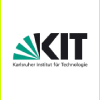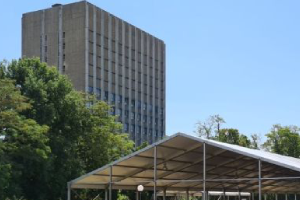P.O. Box 3640, 76021 Karlsruhe, Germany
Career Counselling

Karlsruhe Institute of Technology is a highly ranked institution of higher education located in the city of Karlsruhe in Southern Germany. Its history stretches back almost two centuries, and it is now home to over 22,000 students, most of whom are enrolled in programs in Science and Engineering.
Within the academic and research side of KIT, there are 11 Departments, eight of which are related to various aspects of Science and Engineering, in addition to Humanities, Architecture, and Business Management. These Departments are further divided into Inst...
| Establishment year | 1825 (earliest precursor founded) |
| Total Students | 22,373 |
| International Students | N/A |
| QS World University Rankings 2024 | 119 |
| Campus Size | N/A |
| Total Number of Campuses | 4 (+ 3 additional locations) |
| University Website | https://www.kit.edu/english/ |
| No. of Schools and Divisions | 11 Departments |
| Nobel Prize Winner Alumni | 6 |
| No. of Education Programs | 44 (undergraduate), 59 (Master’s) |
| Student to Faculty ratio | 3.9:1 |
KIT offers undergraduate and postgraduate courses through 7 Departments, which are further subdivided into Institutes.
Applicants to undergraduate courses at KIT must have a high school secondary degree. For students from most countries, such a degree is sufficient; however, for students from a few countries, including India, the German Embassy must additionally certify the school leaving certificate as valid. If this is not done, the student may be admitted conditionally on finishing a one year preparatory degree at the University. Some competitive programs may require minimum levels of performance in certain important subjects.
Applicants to Master's programs at KIT must either hold a Bachelor's degree from a recognized international University or be in the final year of such a degree. There are many program specific requirements. For example, management courses usually require work experience, and specialized research programs may mandate relevant research experience or even a record of journal publications. Some programs may also require the candidate to appear for an entrance examination or preliminary online interview.
Both undergraduate and postgraduate courses have language proficiency criteria. These vary according to the medium of instruction. If the program to which the student is applying is taught in German, proof of at least B2 proficiency level is required, via test scores from a recognized examination. A few programs are taught in English, especially at the Master's level. These require above average TOEFL or IELTS scores. The University assists international students with language requirements through German classes held part time during their first year of study.
The first step in the admission process is to check the program pages carefully to check the eligibility criteria and application deadlines. After this, all students (domestic and international) must create an account on the KIT Application Portal as a precursor to applying. The application procedure is roughly similar for undergraduate and postgraduate programs; with the only difference being in the type of degree certificate uploaded. All international applicants must complete these steps:
KIT usually responds over email to all candidates within 4 weeks of the submission date, with either an Admission Offer Letter or a rejection. Successful candidates can pay the tuition and general fees for the first semester to confirm their enrollment, after which they can apply for a long term German student visa and travel to Karlsruhe. Upon arrival in the city, they must present themselves to the local authorities to obtain a Residence Permit for the expected duration of their stay in Germany.
Two types of fees are payable by students at KIT: tuition and general fees.
Tuition fees are only applicable to international students (from outside the European Union). These students must pay an amount of 3,000 Euros per year (1,500 Euros per semester). Domestic students are exempt from paying tuition fees.
General fees must be paid by all students. The total amount payable is 180.20 Euros per semester:
Karlsruhe has a significantly lower cost of living than larger cities like Munich or Berlin, and the associated non-academic costs are therefore lower for students at KIT. The University estimates that the monthly living expenses should range from 700 to 900 Euros. Of this, rent makes up a little over 50%, with student dormitories available at 300 Euros per month, and private housing starting at 400 Euros and going up to 600 Euros per month. Food costs are usually 200 to 300 Euros per month, on average. Other costs, including travel, shopping, and academic material expenses, rarely exceed a total of 100 Euros per month.

Karlsruhe Institute of Technology has four campuses in the city and outskirts of Karlsruhe: North (the main location), South, East, and West. All four campuses are well equipped with state of the art classrooms, laboratories, and sports facilities, in addition to open green spaces. The University also has branch offices and academic locations in three other German cities: Garmisch Partenkirchen, Ulm, and Dresden.
KIT for All is the campus initiative of Karlsruhe Institute of Technology that seeks to provide free training in technical skills for members of the public. Students and faculty members take part in social welfare programs and use their skills for the benefit of less fortunate residents of the city. The Constitutional Student Union supervises the efforts of this initiative, and of several student associations or clubs. These societies are active in the cultural sphere, and train students of KIT in the skills needed to organize world class performances that are open to residents of the city. The Student Union also organizes weekly events - both academic (e.g. lectures) and extracurricular (for example, musical performances).

Sports and fitness play a very important role in the lives of KIT students. All campuses have access to sports grounds, swimming pools, and internal halls and courts. Gym memberships cost a few Euros per month, and open areas at all seven University locations encourage students to stay active by walking or biking between academic areas. Elite athletes at KIT have the opportunity to represent the University at the State or National level.
KIT is one of the few public German Universities that charges international students a tuition fee. Therefore, most foreign students at the University apply for a variety of scholarships to help fund their studies. A few of them are listed below.
The Deutschland Stipendium is the most prominent scholarship awarded by the Government of Germany. It awards its winners 300 Euros per month for a period of a year, though extensions can be granted in rare cases. First year students of undergraduate and postgraduate programs may apply, and the scholarship decision is made on the basis of academic potential and merit, with consideration given to mitigating factors like financial hardship and disability. Social work is another important factor that is taken into account. There is no upper limit on the number of awardees, and all qualified candidates can expect to receive this scholarship.
BAföG is the main external scholarship available to students at KIT. Under the Federal Training Assistance Act, students can apply for a scholarship based on financial need. The magnitude varies according to individual requirements, and half of the amount awarded does not need to be paid back. The remaining 50% has no interest and can be paid back after graduation. Applications must be submitted directly to the Office for Educational Support within the State government rather than to the University.
